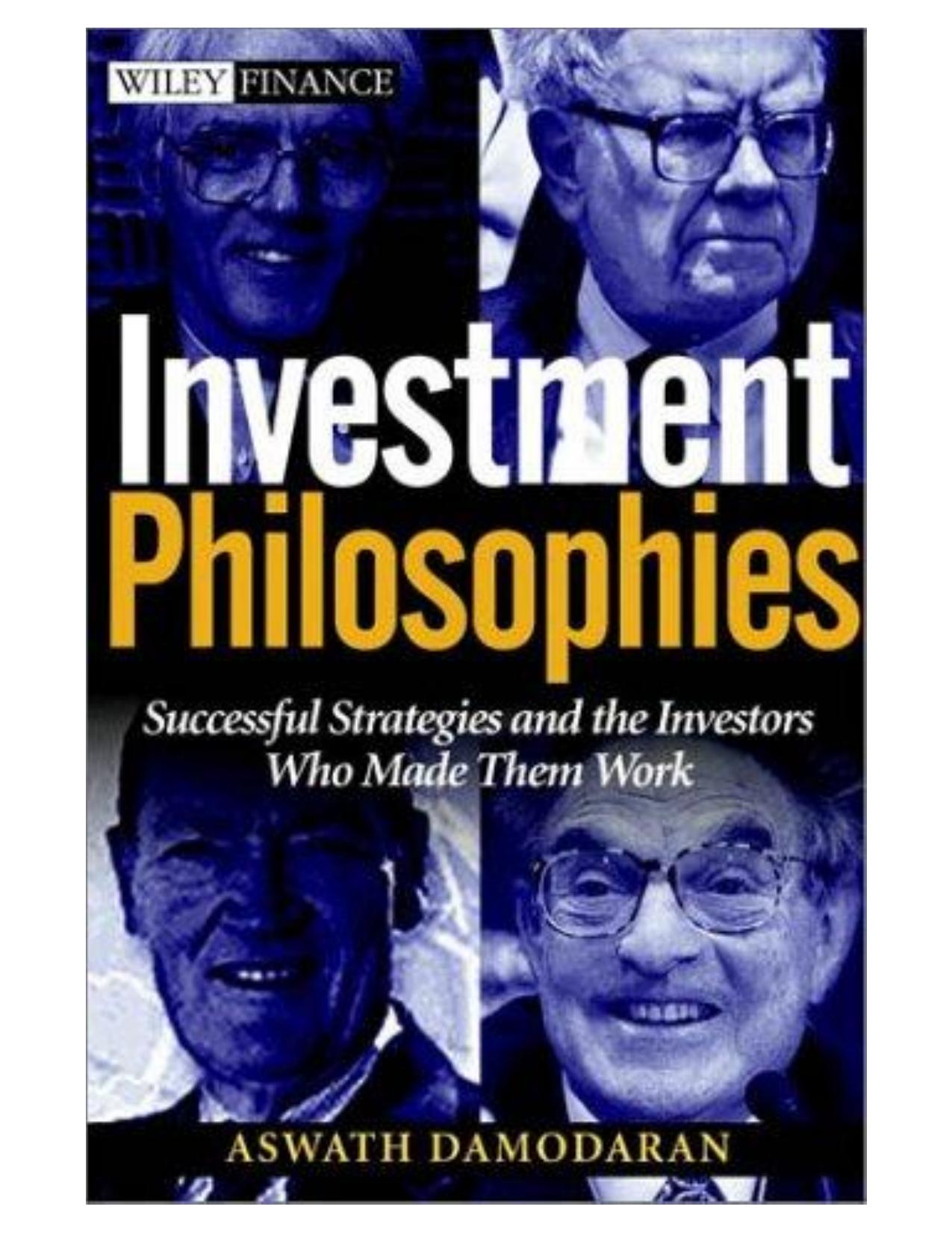Investment Philosophies by Aswath Damodaran

Author:Aswath Damodaran
Language: eng
Format: epub, pdf
ISBN: 9781118235614
Publisher: Wiley
Published: 2012-06-21T16:00:00+00:00
TABLE 8.3 Market Reaction to Divestiture Announcements
Motive Announced
Price Announced Yes No
Yes 3.92% 2.30%
No 0.70% 0.37%
There are two primary differences between a divestiture and a spin-off. The first is that there is often no cash generated for the parent firm in a spin-off. The second is that the division being spun off usually becomes an independent entity, often with existing management in place. As a consequence, the first two reasons given for divestitures—a buyer who generates higher value from the assets than the divesting firm and the need to meet cash flow requirements—do not apply to spin-offs. Improving the focus of the firm and returning to core businesses, which we offered as reasons for divestitures, can be arguments for spin-offs as well. There are four other reasons:
1. A spin-off can be an effective way of creating value when subsidiaries or divisions are less efficient than they could be and the fault lies with the parent company, rather than the subsidiaries. For instance, Miles and Woolridge consider the case of Cyprus Minerals, a firm that was a mining subsidiary of Amoco in the early 1980s.27 Cyprus was never profitable as an Amoco subsidiary. In 1985, it was spun off after losing $95 million in the prior year. Cyprus cut overhead expenses by 30 percent and became profitable within six months of the spin-off. Since the management of Cyprus remained the same after the spin-off, the losses prior to it can be attributed to the failures of Amoco’s management. When a firm has multiple divisions and the sum of the divisional values is less than what the parent company is valued at, you have a strong argument for a split-off, with each division becoming an independent unit.
2. The second advantage of a spin-off or split-off, relative to a divestiture, is that it might allow the stockholders in the parent firm to save on taxes. If spin-offs and split-offs are structured correctly, they can save stockholders significant amounts in capital gains taxes. In 1992, for instance, Marriott spun off its hotel management business into a separate entity called Marriott International; the parent company retained the real estate assets and changed its name to Host Marriott. The entire transaction was structured to pass the tax test, and stockholders in Marriott were not taxed on any of the profits from the transaction.
3. The third reason for a spin-off or split-off occurs when problems faced by one portion of the business affect the earnings and valuation of other parts of the business. As an example, consider the pressure brought to bear on the tobacco firms, such as Philip Morris (Altria) and RJR Nabisco, to spin off their food businesses because of investor perception that the lawsuits faced by the tobacco businesses weighed down the values of their food businesses as well.
4. Finally, spin-offs and split-offs can also create value when a parent company is unable to invest or manage its subsidiary businesses optimally because of regulatory constraints. For instance, AT&T, when it was a partially regulated telecommunications firm, found itself constrained in decision making in its research and computer divisions.
Download
This site does not store any files on its server. We only index and link to content provided by other sites. Please contact the content providers to delete copyright contents if any and email us, we'll remove relevant links or contents immediately.
Rich Dad Poor Dad by Robert T. Kiyosaki(6632)
Pioneering Portfolio Management by David F. Swensen(6300)
How To Win Friends and Influence People by Dale Carnegie(4512)
The Money Culture by Michael Lewis(4207)
The Dhandho Investor by Mohnish Pabrai(3764)
The Wisdom of Finance by Mihir Desai(3746)
Liar's Poker by Michael Lewis(3447)
Fooled by Randomness: The Hidden Role of Chance in Life and in the Markets by Nassim Nicholas Taleb(3123)
The ONE Thing by Gary Keller(3071)
Mastering Bitcoin: Programming the Open Blockchain by Andreas M. Antonopoulos(3042)
The Intelligent Investor by Benjamin Graham Jason Zweig(3041)
The Psychology of Money by Morgan Housel(3034)
Rich Dad Poor Dad: What The Rich Teach Their Kids About Money - That The Poor And Middle Class Do Not! by Robert T. Kiyosaki(2958)
Investing For Dummies by Eric Tyson(2953)
How to Day Trade for a Living: Tools, Tactics, Money Management, Discipline and Trading Psychology by Andrew Aziz(2949)
How to Win Friends and Influence People by Dale Carnegie(2914)
Market Wizards by Jack D. Schwager(2700)
How to Pay Zero Taxes, 2018 by Jeff A. Schnepper(2655)
Zero Hour by Harry S. Dent Jr. & Andrew Pancholi(2647)
